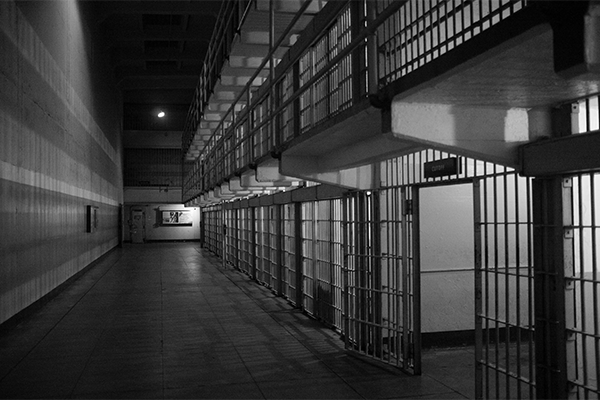OKLAHOMA CITY – An inmate serving a 35-year state prison sentence for second-degree murder has been charged with running a large- scale drug trafficking operation from his prison cell.
It was the second such case in three months alleging a drug ring was directed from an Oklahoma prison.
A federal grand jury on June 4 indicted Richard Leroy, a/k/a “Solo,” 33, of eight counts of possessing methamphetamine with intent to distribute and one count of a drug conspiracy. Leroy, who was incarcerated at the Davis Correctional Facility in Holdenville, is alleged to have controlled his drug conspiracy via use of contraband cell phones.
He was indicted June 4 and was arraigned on the charges Wednesday in Oklahoma City’s Western District federal court.
Specifically, the indictment alleges that over a two-year period, Leroy used contraband cell phones to coordinate both the acquisition and distribution of large amounts of methamphetamine and heroin. He accomplished this by recruiting and using non-incarcerated co-conspirators to serve as his de facto presence on the streets, U.S. Attorney Timothy J. Downing said.
The indictment lays out eight separate instances during the period of the conspiracy in which Leroy is alleged to have possessed – through his third-party couriers – significant amounts of either methamphetamine or heroin.
All told, the indictment alleges that Leroy was running a drug conspiracy capable of moving hundreds of pounds of controlled substances each year – all without ever leaving his prison cell.
If convicted, Leroy faces a maximum penalty of life in federal prison on each countandafineofupto$10 million.
The case was developed in a joint investigation by the FBI, the Drug Enforcement Administration, Homeland Security Investigations, the Oklahoma City Police Department, the District 21 Task Force, the Oklahoma Bureau of Narcotics, and the Oklahoma Department of Corrections. Assistant U.S. Attorney David McCrary is prosecuting the case.
Leroy was charged in Oklahoma County with two counts of first-degree murder in 2007, but pleaded guilty in 2009 to two counts of second-degree murder. He was sentenced to 45 years’ incarceration, with 10 years suspended.
Leroy’s criminal record includes several other convictions, including second-degree burglary (2006), concealing stolen property (2006), possession of methamphetamine (2008), possession of drug paraphernalia (2008), possession of marijuana (2008), making a false declaration of ownership to a pawnbroker (2009), and possession of contraband in a penal institution (2009).
KAN. DRUG RING RUN FROM MCALESTER PEN
A 55-count federal indictment issued in March named 24 defendants and alleges that a convicted killer directed a drug ring in Wichita, Kan., from his prison cell in the Oklahoma State Penitentiary with the assistance of a double-murderer from Comanche County.
Travis Knighten, 47, convicted of murder in Kansas, is alleged to have been the brains behind a criminal organization that distributed methamphetamine, heroin, cocaine powder, crack cocaine, and marijuana in Wich- ita, Kan., from Knighten’s cell at McAlester’s maximum-security state penitentiary.
Knighten purportedly put together deals with the assistance of a co-defendant who also was an inmate at McAlester: Armando Luna, 39, serving a life sentence without parole for a guilty plea in 2014 to the first-degree murder of a fellow inmate at the private prison near Lawton in 2012, state court records relect. At the time, Luna was already serving a life sentence on a conviction for a murder committed in Tulsa County in 2007.
The 22 other defendants are all residents of Wichita, Kan., federal records indicate.
Last month a federal judge in Kansas declared that “this case has an unusual and complex nature” for several reasons:
• Two dozen individuals were indicted in the case.
• Federal agents intercepted telephone calls over four different ’phone lines during their investigation, which generated a “significant number” of transcripts and recorded conversations in addition to ’phone downloads and surveillance videos.
Also, the global coronavirus pandemic is “interfering with discovery production” of information pertinent to the case, the judge wrote.
A status conference in the case is set for July 10 in Wichita, Kan.


